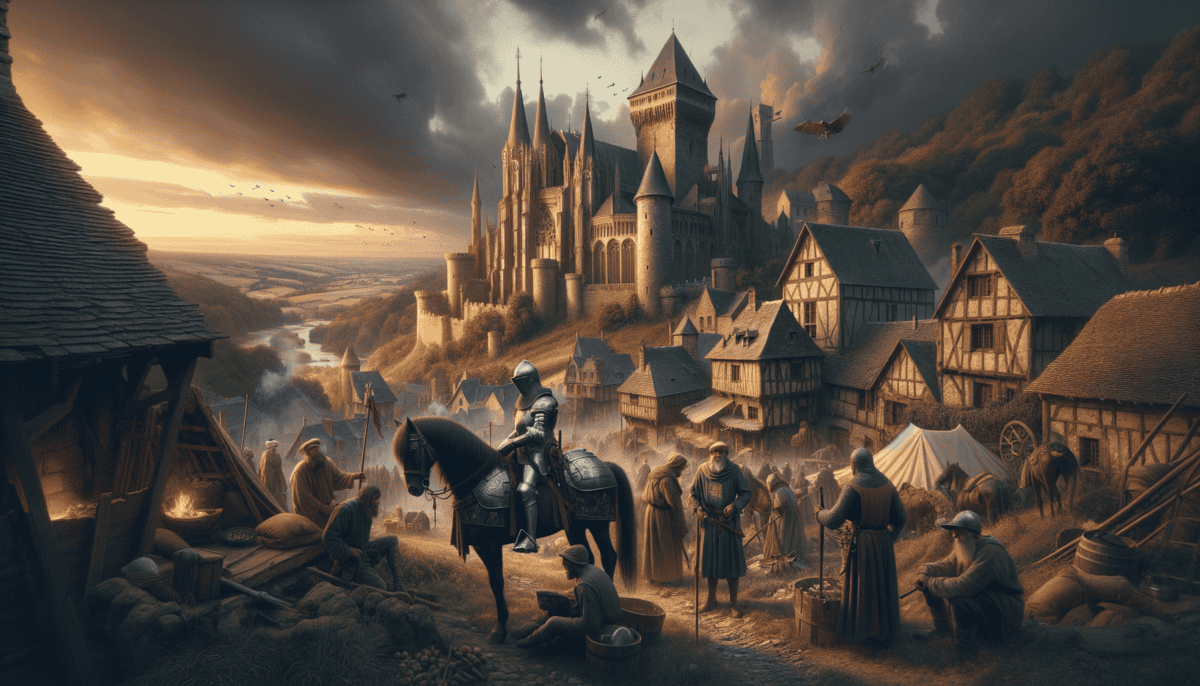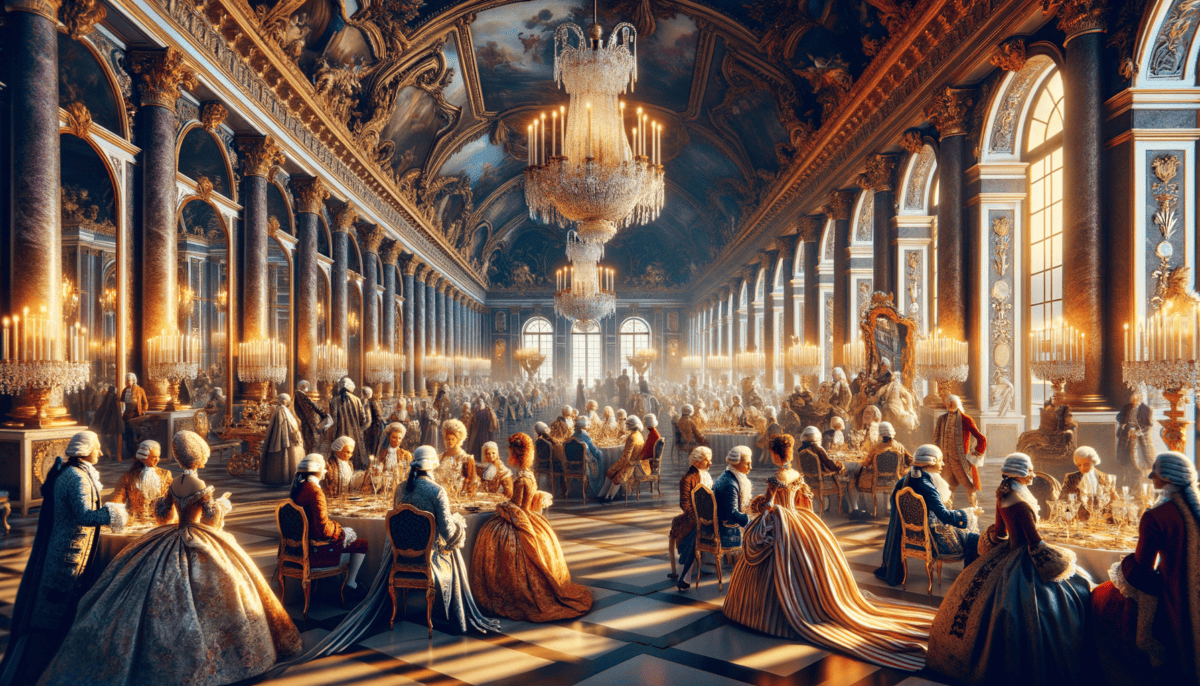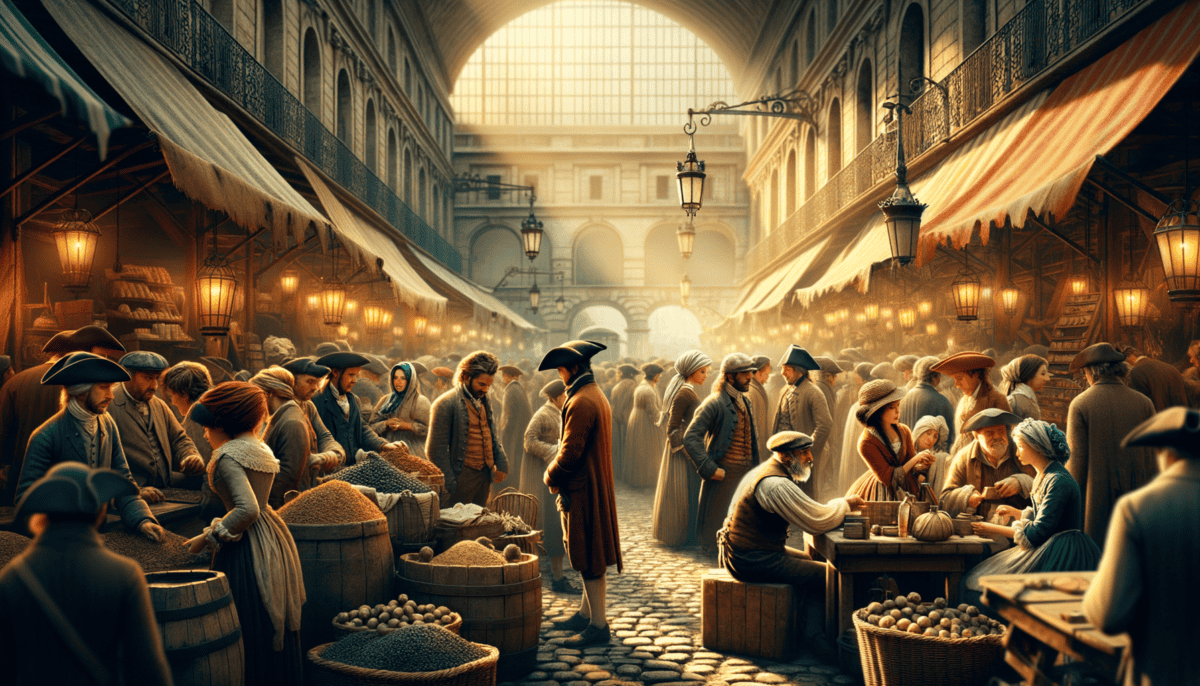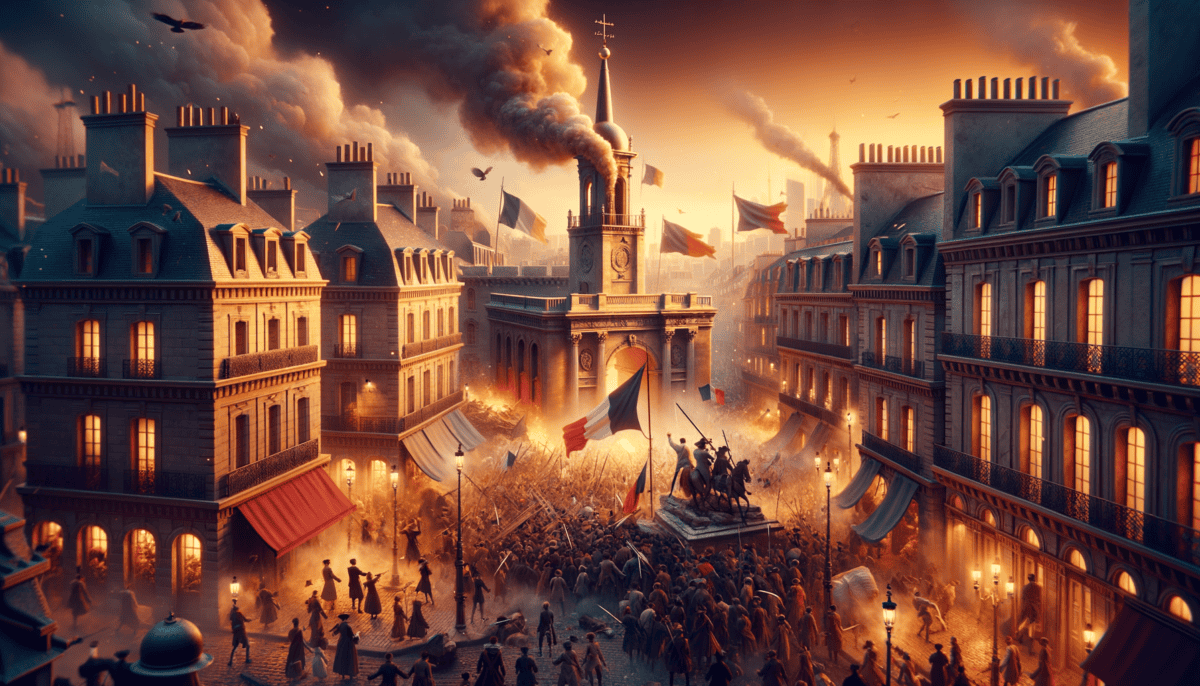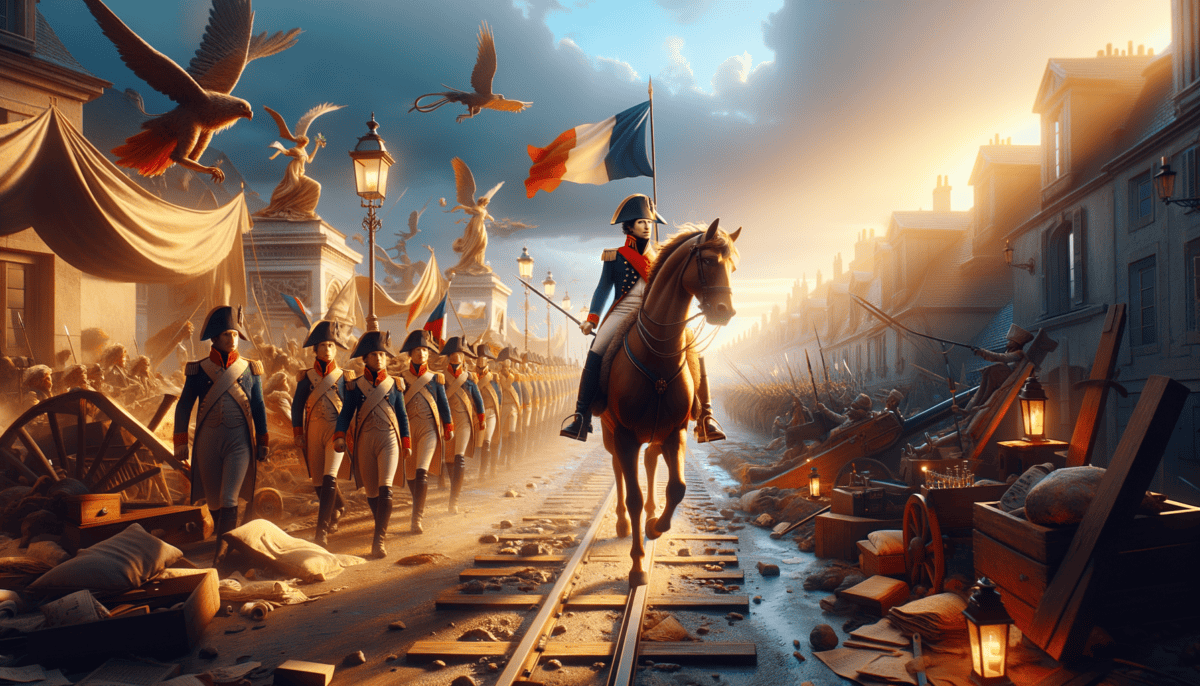Ancient Warriors of the Forest
Long ago, in a land of deep forests and rolling hills, lived brave people called the Gauls. They were tall and strong, with long hair that shone like gold in the sunlight.
"Look at our beautiful land," said Vercingetorix, the young chief of the Gauls, as he stood on a grassy hill. His blue eyes sparkled as he watched his people in the village below. "We must protect it always."
The Gauls lived in round houses made of wood and straw. They were very good at making things! They crafted beautiful jewelry from gold and silver, and their blacksmiths made the strongest swords and shields in all of Europe.
Fun Fact: The Gauls loved bright colors! They wore striped cloaks and pants in red, blue, and yellow.
Every day was busy in the Gaulish village:
- Women wove colorful cloth on big looms
- Children helped gather berries and herbs
- Men hunted in the forests and farmed the land
- Warriors practiced fighting with their shields
- Druids (wise teachers) shared stories around the fire
"Tell us about the old days," the children would beg the village storyteller each night. They sat around the warm fire, eyes wide with wonder.
The storyteller smiled and began: "Our ancestors were the first to walk these forests. They taught us to read the stars and respect the spirits of nature…"
But dark clouds were gathering. One day, a messenger rushed into the village, out of breath. "Romans are coming!" he shouted. "Many soldiers with shiny armor!"
Vercingetorix stood tall and brave. "We will defend our homes," he declared. "We are the Gauls – free people of the forest!"
The village burst into action. Warriors painted their faces with blue woad dye to look fierce. Women gathered food and supplies. Children helped hide the village's treasures in secret places.
The Battle Begins
The Roman army was huge, with rows and rows of soldiers carrying red shields. But the Gauls were clever. They knew every tree and path in their forests.
"We fight for our families!" Vercingetorix called out. The Gauls shouted back their battle cry, the sound echoing through the trees.
The battle was long and hard. The Gauls fought bravely, using the forest to their advantage. They would jump out from behind trees to surprise the Romans, then disappear back into the shadows.
Sometimes they won battles, and sometimes they lost. But the most important thing was that they never gave up. They showed everyone how brave and strong they were.
Even today, people remember the fierce Gauls who lived in ancient France. Their story teaches us about being brave and standing up for what we believe in. ️
The sun set over the forests of Gaul, painting the sky in beautiful colors. Around their fires, the Gauls kept telling their stories, passing them down to their children, making sure their brave history would never be forgotten.
New visitors were coming to their land, bringing big changes. But the spirit of the Gauls – their courage, their love of freedom, and their pride – would live on forever in the heart of France.
Knights and Castles in Dark Times
The sun rose over a changed France. Gone were the wooden villages of the Gauls. Now, mighty stone castles reached toward the sky!
Little Marie peered through a castle window. “Papa, why do we live behind such tall walls?” she asked her father, a brave knight.
“To keep us safe, my dear,” Sir Roland answered, adjusting his shiny armor. “These are troubled times.”
Important! In medieval France, knights protected common people who worked the land. They lived by a special code of honor called chivalry. ⚔️
Life in medieval France was like a giant puzzle, with everyone having their special place:
- Kings and queens ruled from grand castles
- Knights defended the kingdom on horseback
- Monks wrote books and helped sick people
- Farmers grew food for everyone
- Craftspeople made useful things
But soon, a terrible sickness called the Black Death swept across the land. People were scared and sad. Many villages became empty and quiet.
“We must help each other,” declared Sister Isabella, a kind nun who cared for sick people. “That’s how we’ll survive these dark days.”
The Hundred Years’ War
Just when things seemed bad enough, another problem came. The kings of England and France started fighting over who should rule the land. This fight lasted so long that people called it the Hundred Years’ War!
A young girl named Joan heard voices telling her to help France. She was just a farmer’s daughter, but she was very brave. Joan put on armor and led French soldiers into battle! ️
“God has sent me to save France!” Joan declared. Many people didn’t believe a girl could be a warrior, but she proved them wrong.
Inside a cozy cottage, a grandmother told her grandchildren: “Joan showed us that anyone can be brave and make a difference, no matter who they are.”
Life Goes On
Even during hard times, people found ways to be happy. They held fun festivals with music and dancing. Children played games in village squares. Craftspeople made beautiful things.
In castle kitchens, cooks prepared feasts:
“Taste this soup,” said Cook Martha to her helper. “I added special herbs from the castle garden!”
At night, traveling musicians called troubadours would sing stories about brave knights and their adventures:
“Listen, good people, to tales of glory,
Of knights so bold and their famous story!”
Changes were coming to medieval France. New ideas about art and learning were spreading. People started thinking differently about the world.
The times were tough, but the French people were tougher. They learned to work together and help each other. They built beautiful churches and created amazing art that we can still see today.
As the sun set behind the castle walls, Sir Roland hugged his daughter Marie. “Remember,” he said softly, “even in the darkest times, there is always hope. That’s what makes us strong.”
Lights twinkled in castle windows across France. Though the medieval times were often dark and difficult, they helped shape France into something new and wonderful. The stage was set for even bigger changes to come.
The Glory Days of Versailles
The morning sun sparkled on golden gates unlike anything France had ever seen before. Welcome to Versailles, the most amazing palace in the world! ✨
Young Pierre rubbed his eyes in wonder. He had walked for days with his father to deliver fresh bread to the palace kitchens. “Papa, it’s like a dream!” he gasped.
Versailles was built by King Louis XIV, nicknamed the “Sun King” because he made everything shine!
“Look at those fountains!” Pierre pointed to jets of water dancing in the gardens. His father smiled, “The king spends more on those fountains than some villages make in a year.”
Inside the palace, mirrors covered entire walls, making everything sparkle twice as bright. Ladies in puffy dresses swept through halls wearing shoes with red heels – only special people could wear those!
The most important room was called the Hall of Mirrors:
“This is where the king starts each day,” whispered a palace guard to Pierre. “Everyone must bow when he enters. He’s so powerful, other kings call him the Sun King!”
Life at Court
Living at Versailles was like being in a fancy play. Everyone had special roles:
Morning Routine at Versailles:
• Wake up the king with music
• Help him dress (it took many people!)
• Watch him eat breakfast
• Follow him around all day
“Even getting dressed is a big show here,” giggled Marie-Claire, a lady’s maid. “The queen needs five people just to put on her dress!”
Art and Beauty Everywhere
King Louis loved beautiful things. He brought the best artists, musicians, and dancers to Versailles. Every night was like a party:
“Tonight we dance!” announced the court musician. “The king himself will lead!”
In the gardens, famous artists painted pictures while composers wrote new music. Poets wrote verses about the king’s greatness:
“Like the sun that lights our days,
Our king’s glory never fades!”
Not Everyone Was Happy
But outside the golden gates, life wasn’t so sparkly. Common people worked hard and paid lots of taxes to pay for all this fancy stuff.
“Why must we give so much to the palace?” grumbled Pierre’s father as they walked home. “Our village needs repairs too.”
The king didn’t worry about these complaints. He said, “I am the state!” meaning he could do whatever he wanted.
Change in the Air
As years passed, more people started asking questions:
“Why does the king need so many diamonds when we can barely buy bread?” whispered market women.
Even some nobles began thinking things should change. They read new books about freedom and fairness.
But in the glittering halls of Versailles, the music played on. Ladies danced in their fine dresses. Fountains sparkled in the sun. The royal court lived in its golden bubble, not seeing the storm clouds gathering outside.
As Pierre and his father walked home in the sunset, they saw Versailles glowing like a distant star. “Papa,” asked Pierre, “will things always be this way?”
His father looked thoughtful. “Nothing stays the same forever, son. Not even the brightest sun.”
Bread and Books
The streets of Paris buzzed with angry voices. Marie clutched her empty basket closer. The bread shop had nothing left again.
“Three hours in line for nothing!” she sighed. Around her, other hungry people grumbled and shook their fists.
While the palace ate fancy cakes, common people often went hungry in 1780s France.
“Did you hear?” whispered her friend Sophie. “The king spent another fortune on diamonds while we can’t even buy bread!”
Near the market, something new was happening. People gathered in coffee shops to read and talk. They called these places “salons.”
New Ideas Spread
In one cozy salon, candles flickered as Jean-Paul read from a new book. “Listen to this,” he said excitedly. “It says all people should be treated fairly!”
The room grew quiet. These were dangerous words. But more and more people wanted to hear them.
Important New Ideas People Discussed:
• Everyone deserves basic rights
• Kings shouldn’t have all the power
• People should help make decisions
• Laws should be fair for all
Marie listened from her corner. She couldn’t read, but she understood: things weren’t right in France.
Two Different Worlds
“Look!” Sophie pointed at a fancy carriage rolling by. Inside, a noble lady wore silk and diamonds. “She’s never missed a meal in her life.”
The differences between rich and poor were getting bigger:
At the Palace: “More champagne!” called a duchess, dancing in her new dress.
In the City: “More taxes!” demanded the king’s men, taking what little people had.
Whispers Grow Louder
In dark corners and busy markets, people started speaking up:
“Why should they feast while we starve?” asked an angry baker.
“My children can’t read, but the nobles have private teachers!” said a carpenter.
Even some smart nobles joined in. They wrote books about making France better for everyone.
Storm Clouds Gather
One evening, Marie saw smoke rising from the city. Another bread riot had started. People were getting desperate.
“Something’s going to happen,” Sophie whispered. “You can feel it in the air.”
At the palace, Queen Marie Antoinette asked, “Why are the people so angry?”
“Because they have no bread,” answered a servant.
“Then let them eat cake!” the queen supposedly said, showing how little she understood about regular people’s lives.
A Spark Ready to Light
That night, Marie looked at the palace glowing in the distance. The angry voices in the streets were getting louder. The hungry people were getting braver.
“Change is coming,” Jean-Paul announced in the salon. “The question is: what kind of change will it be?”
Thunder rumbled in the distance. A storm was brewing – not just in the sky, but in the hearts of the French people. The time for just talking was almost over. Soon, there would be action that would shake France to its core. ⚡
Thunder in Paris
The summer of 1789 brought unbearable heat to Paris. The city simmered like a pot ready to boil over. ️
“Look what they’re doing now!” Pierre shouted, waving a paper in the town square. “The king has locked out the people’s representatives!”
On a hot June day, people found the meeting hall doors chained shut. King Louis XVI didn’t want them talking about changes anymore.
The Tennis Court Oath
But the people wouldn’t give up. They found an empty tennis court and made a special promise:
“We won’t stop meeting until France has fair rules for everyone!” they declared, raising their hands to the sky.
The air crackled with excitement and fear. Something big was about to happen.
The Fortress Falls
Marie watched from her window as crowds gathered in the streets. They carried anything that could be used as a weapon.
“To the Bastille!” came the cry. The old prison stood like a giant shadow over Paris.
What happened next would change France forever:
• The angry crowd surrounded the prison
• They demanded weapons stored inside
• Soldiers fired on the people
• The people fought back with all their might
• By sunset, the mighty fortress had fallen
Sophie rushed into Marie’s house, breathless. “We did it! The Bastille is ours!”
A New Dawn
News spread like wildfire through France.
“The king’s power isn’t absolute anymore,” Jean-Paul explained in the salon. “Now we can make France fair for everyone.”
People danced in the streets, singing songs about freedom.
Changes Come Fast
The old ways crumbled quickly:
“No more special privileges for nobles!” declared the new leaders.
“All people are born with rights!” they wrote in a special declaration. ✍️
But at the palace, King Louis XVI and Queen Marie Antoinette didn’t understand. They kept living like nothing had changed.
Dark Clouds Return
Marie noticed the mood shifting again. The excitement of victory turned to something darker.
“It’s not enough,” growled angry voices. “The king and queen are still eating well while we starve.”
One rainy October morning, thousands of women marched to the palace. They carried kitchen knives and farming tools. ☔
“We want the baker and his wife!” they shouted, meaning the king and queen.
No Turning Back
The royal family was forced to leave Versailles. They rode back to Paris in a carriage surrounded by the angry crowd.
“Things will never be the same,” Sophie whispered, watching them pass.
The revolution had begun, but no one knew how far it would go. Some wanted peaceful change. Others wanted revenge. The thunder of change was growing louder, and soon it would shake France to its very foundation. ⚡
A New Dawn for France
A young soldier named Napoleon Bonaparte watched the chaos in Paris with keen eyes. The streets that once echoed with revolutionary songs now fell quiet.
“France needs order,” Napoleon told his friend Marcel one morning. “And I know how to bring it.”
The people were tired of fighting. They wanted someone strong to lead them forward.
The Rise of a Leader
Napoleon wasn’t from a rich family, but he was smart and brave. He quickly became a great general, winning battles for France. ⚔️
“Look how he cares for his soldiers!” people would say. “He eats the same food and sleeps in the same conditions as them.”
Soon, everyone was talking about the brilliant young general who could make France strong again.
Changes for Everyone
When Napoleon became the leader of France, he made many important changes:
He created new schools where any child could learn, not just rich ones.
He made sure everyone followed the same laws.
He helped build better roads and bridges.
“For the first time,” Marie told her daughter, “people can succeed because of what they can do, not who their parents were.”
Ideas Spread Across Europe
The ideas of the French Revolution – freedom, equality, and brotherhood – began to spread to other countries.
Sophie’s son became a teacher in the new schools. “We’re teaching children that they can dream big,” he said proudly.
Even though Napoleon later became too powerful and was defeated, the changes in France couldn’t be undone.
A Changed Nation
Years later, Pierre sat with his grandchildren in the same square where the revolution began.
“Tell us about the old days, Grandpa,” they begged.
He looked at the busy streets, where people of all backgrounds now worked and lived together.
“France is different now,” he said with a smile. “We learned that when people work together, they can change the world.” ⭐
The Legacy Lives On
The story of France teaches us important lessons. People everywhere still talk about liberty, equality, and justice – ideas that grew strong during the French Revolution.
Jean-Paul’s great-granddaughter became a judge, something that would have been impossible in the old days.
“The most important thing,” she often said, “is that we keep working to make things fair for everyone.”
And so, France continued to grow and change, always remembering the brave people who fought for a better world. Their dream of freedom and equality continues to inspire people everywhere, showing that big changes start with brave hearts and bold ideas.


